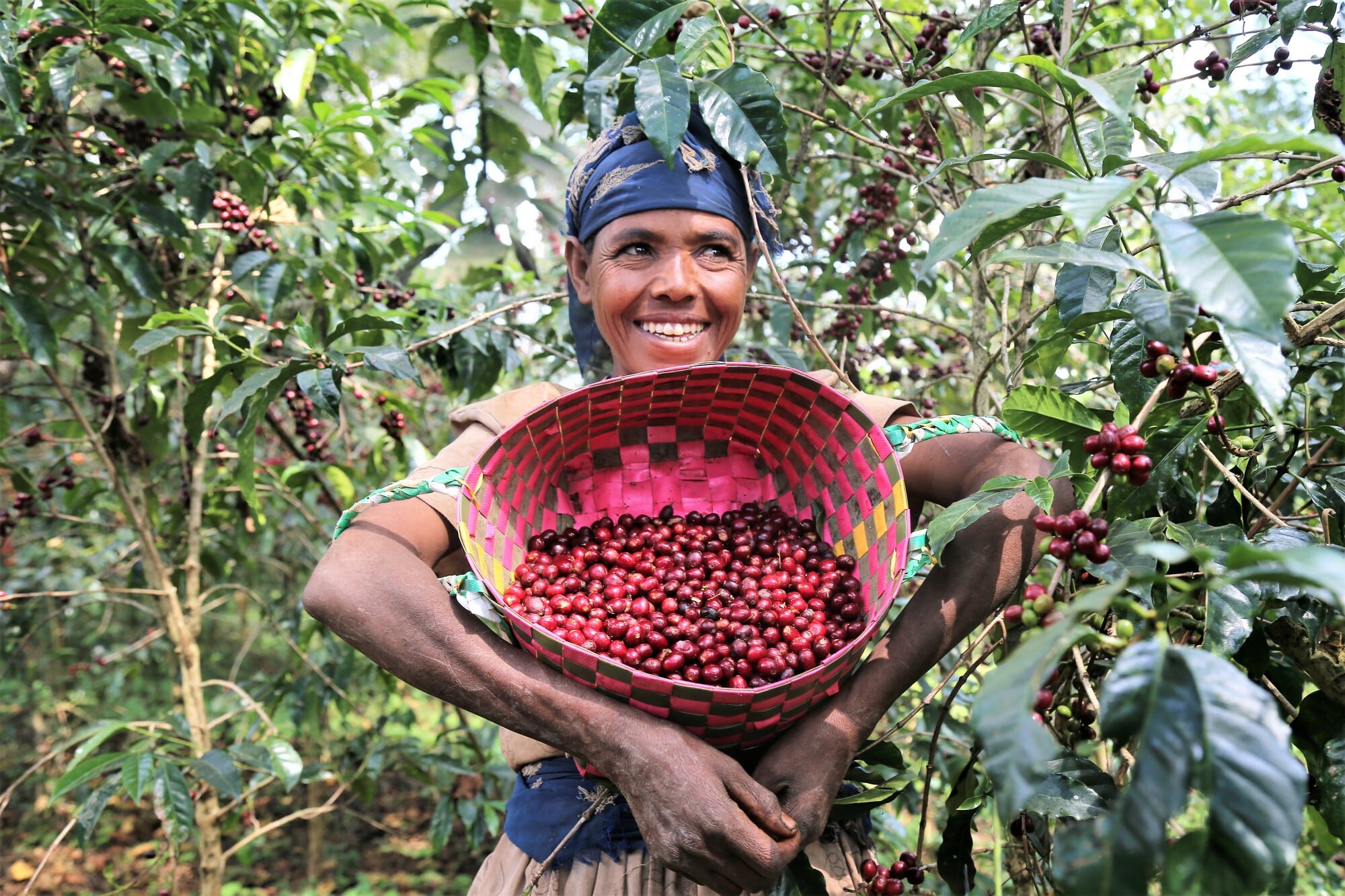Programme
Complete
Forest coffee value chain
Country
Ethiopia
Running from
2019-2024
People reached
29,265
Key focus areas
Boost productivity
Increase incomes
Protect ecosystems

This project supported seven coffee producing Participatory Forest Management Cooperatives (PFMCs) in the commercialisation of forest coffee, boosting the productivity of old forest coffee trees, improving the quality of coffee and developing links with better markets.
Farm Africa worked with PFMCs to protect and manage the existing forest and reduce deforestation and greenhouse gas emissions. Production and post-harvest handling practices were improved to achieve consistency in the quality and supply of forest coffee. Through their unions, cooperatives diversified their national and international market linkages. Also, the PFMCs developed their capacity to directly control coffee quality, negotiate a higher value with buyers and therefore improve coffee farmers’ livelihoods.
The forest coffee systems of Ethiopia are generally assumed to host the largest genetic diversity of wild coffee in the world.
As lack of capital is one of the main challenges in the coffee sector, we also supported PFMCs to gain access to finance to solve their working capital shortages.
This project was funded by Pilot House Philanthropy and the David & Lucile Packard Foundation.


